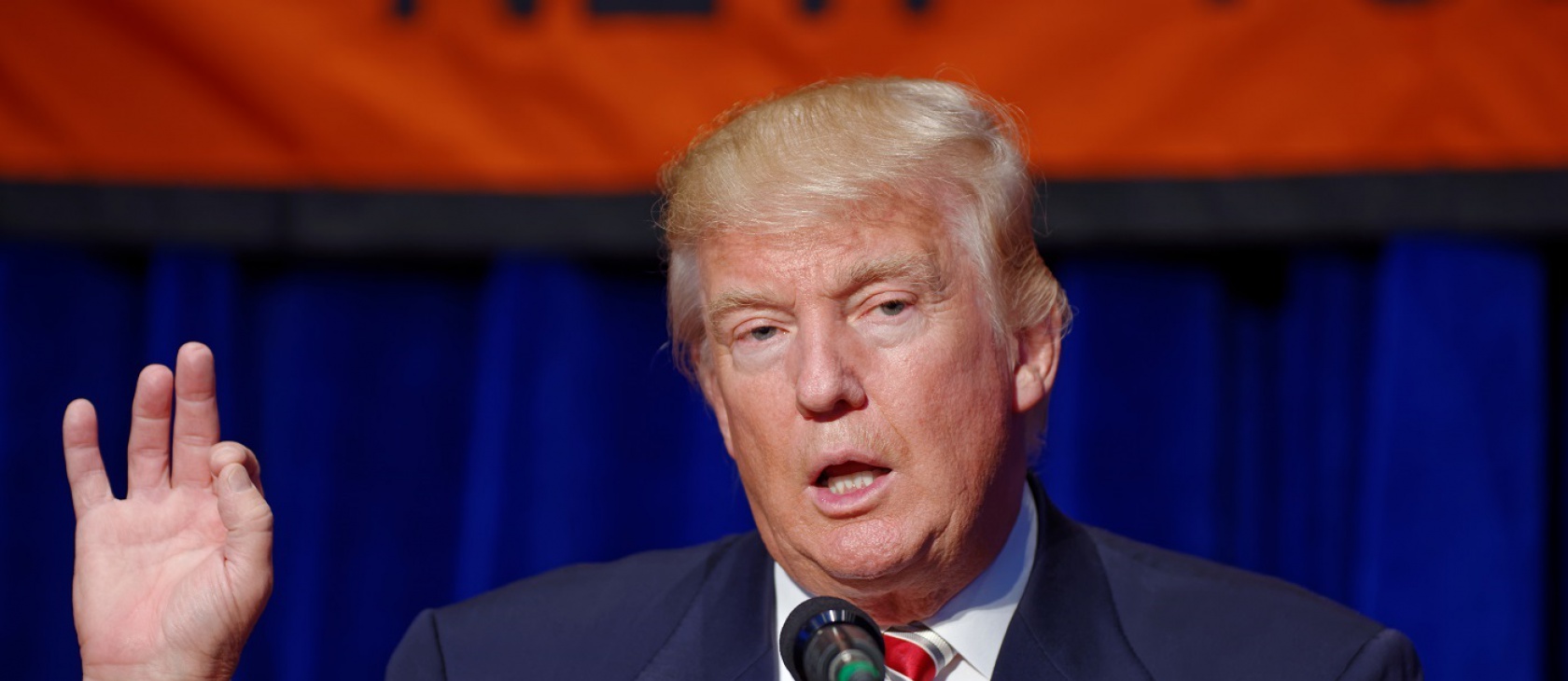President Donald Trump is scheduled to announce new steel and aluminum tariffs from the White House at 3:30 p.m. local time.
What is President Trump going to announce?
Trade officials have said the president will impose across-the-board tariffs of 25 percent on imported steel and 10 percent on aluminum, which will go into effect between 15 and 30 days from now. He would temporarily exempt Canada and Mexico, according to Trump adviser Peter Navarro, although President Trump has tied this to a renegotiation of NAFTA. As of this writing, the full details remain in flux.
Who would affected by “across-the-board” tariffs?
The top 10 steel exporters to the U.S. are, in order: Canada, Brazil, South Korea, Mexico, Russia, Turkey, Japan, Taiwan, Germany, and India. Eleventh-ranked China accounts for about two to three percent of U.S. steel imports.
How will this affect U.S. workers and consumers?
Tariffs raise the cost of imported goods, often with the intention of preserving jobs U.S. industries. This means higher costs for everyone purchasing anything made with steel or aluminum, from canned food and drinks to automobiles. “Tariffs are taxes that make U.S. businesses less competitive and U.S. consumers poorer,” according to a letter that more than 100 congressional Republicans sent to President Trump.
This has unintended consequences, since businesses that purchase steel employ 16-times as many Americans (6.5 million) as steel producers (400,000). The Mercatus Center’s Veronique de Rugy has predicted the tariffs will result in “thousands” of net job losses.
Among the largest consumers of steel and aluminum are defense industries like the aerospace sector and shipbuilders – industries vital to national security.
Has this been tried before?
Hasn’t everything? In 2002, George W. Bush slapped tariffs on imported steel after a string of U.S. steel bankruptcies. However, he revoked them 18 months into their three-year term, after a government report found that tariffs cost Americans “an estimated annual GDP loss of $30.4 million.” About one-third of U.S. industries struggled to obtain the steel they needed, especially the “steel fabrication, motor vehicle, motor vehicle parts, furniture,” and canning industries. Americans paid an estimated $400,000 for each steel job saved, according to the Peterson Institute for Economic Affairs.
Is this the beginning of a trade war?
It could be. The EU has announced it will retaliate by raising tariffs against €2.8 billion ($3.5 million) worth of U.S. goods. The four-page list of targeted industries, drawn up before the president’s announcement, is designed to exert maximum pressure on Congressional leaders, taxing Harley Davidson motorcycles produced in Paul Ryan’s Wisconsin and bourbon from Mitch McConnell’s Kentucky. Other made-in-America products on the list include steel, clothing, make up, yachts, kidney beans, rice, cranberries, orange juice, sweet corn, peanut butter, and tobacco products.
How can the president do this without congressional approval?
President Trump has invoked Section 232 of the Trade Expansion Act. Passed in 1962, at the height of the Cold War, the seldom-used measure allows the president to impose tariffs if he deems it necessary for national security. President Trump has said preserving the U.S. steel industry is a vital national security concern. Congress has steadily ceded more of its power to the executive branch over the last century.
Do current steel imports threaten national security?
It’s hard to see how. The U.S. steel industry supplied 73 percent of the domestic market last year. The two trading partners with the most strained relations – China and Russia – represent 11 percent of all steel imports.
How are U.S. allies responding?
America’s transatlantic allies aren’t buying the president’s rationale. “We cannot see how the EU, friends, allies in NATO, can be a threat to security in the U.S.,” said EU Trade Commissioner Cecilia Malmstrom. German Economy Minister Brigitte Zypries agreed, “It is not credible that European or German steel imports should endanger the national security of the U.S.”
Some have responded in warlike terms. Malmstrom promised the EU will take “a firm and proportionate response,” and Zypries said “Europe will reply proportionately” – the kind of language political leaders use after terrorist attacks. That may explain why Ludwig von Mises wrote, “Economic nationalism is incompatible with durable peace.”
Others warned of a deepening rift. UK Prime Minister Theresa May expressed “deep concern” over the tariffs in a phone call with Trump on Sunday, adding that “multilateral action was the only way to resolve the problem” of Chinese steel overcapacity.
Inverting President Trump’s tweet, European Council President Donald Tusk replied, “Trade wars are bad and easy to lose,” and IMF managing director Christine Lagarde warned that “nobody wins” a trade war.
European Commission President Jean-Claude Juncker pointedly denounced the entire trade war process last Friday in Hamburg:
Now we will also impose import tariffs. This is basically a stupid process – the fact that we have to do this – but we have to do it. … We can also do stupid. We also have to be this stupid.
How will this affect our Asian allies?
The U.S. has a longstanding obligation to support Taiwan in any potential war with China, yet Taiwan exports more steel to the U.S. than the mainland. Ironically, an across-the-board tariff could hurt Taipei more than Beijing. Meanwhile, South Korean President Moon Jae-in has said he may export more steel to Russia, instead. That certainly has national security implications.
Why should Christians care?
Raising the price of canned food and drinks disproportionately hurts the poor. Straining relations with U.S. allies and potentially hurting defense industries makes the nation less safe. And, if job loss estimates prove accurate, the resultant unemployment will reduce family well-being, harm whole communities, and deplete the funds available for charity or church work.
(Photo credit: Michael Vadon. This photo has been cropped. CC BY-SA 4.0.)














